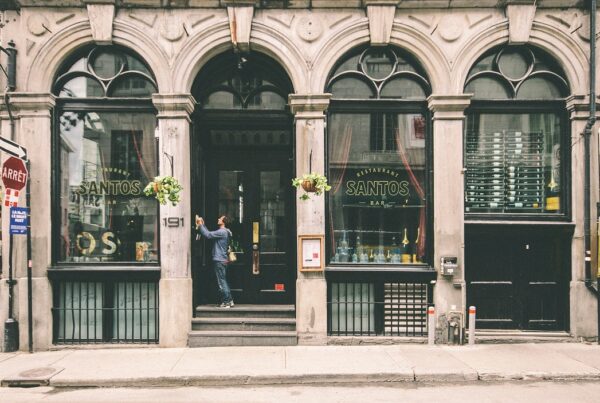And a vision appeared to Paul in the night: a man of Macedonia was standing there, urging him and saying, “Come over to Macedonia and help us.” And when Paul had seen the vision, immediately we sought to go on into Macedonia, concluding that God had called us to preach the gospel to them. (Acts 16:8–10)
Isn’t it interesting that the apostles never started a Christian coffee shop? I mean, the name is there, He-Brews. They never launched a line of overpriced, glue-sewn shoes to help the needy. Paul made some tents, probably organic, maybe fair trade—but not to be hip and socially aware, he did this to make money—to make a profit—to plant churches.
“If you want a Christianity that looks like Acts, commit to planting churches.”
While some of those endeavors aren’t evil, they aren’t the gospel priority of the church of the risen Christ. The New Testament is obsessed with church planting—and if we are going to be New Testament Christians, so should we.
Acts 2 isn’t the only chapter in Acts to long for in your church. Acts 1-28 has some great stuff too.
Learn From The 1st Century
1st Century Christianity has much to teach us 21st Century Christians. Here’s what they did over, and over, and over.
They would:
- Go (Matthew 28:18-20).
- Be Witnesses (Acts 1:8).
- Make Disciples (Matthew 28:18-20).
- Plant Churches (Acts 1-28).
And they did this all because the Lord Jesus said so. He hasn’t commanded that we open Christian greeting card hubs—he hasn’t condemned them either—but the apostolic vision of the New Testament is the viral propagation of the news of a crucified and risen carpenter from Galilee, who paid for sins, and reigns as the Emperor of the Universe inviting sinners to be forgiven and accepted by him, and to him.
No cup of joe can do that—but the church, we exist for that.
Paul’s Answer To The Call For Help
A man from Macedonia cries out for help, so what’s the plan? What do Paul, Silas, Timothy, and Luke decide the Macedonians need?
The gospel (Acts 16:10).
Macedonia is helped by the planting of the church at Philippi.
Planting Churches. Planting The Gospel.
How did Paul help Corinth? He planted a church. The city of Thessalonica? Another church plant. Did Paul mix it up in Ephesus? Maybe a wrestling gym with a crucifixion theme? Of course not—he planted a church.
The planting of gospel-centered churches, filled with gospel-centered people who live as grace-leaking, missional monsters as lights in the darkness, inviting the dead to come alive in Jesus Christ and to dwell in the Kingdom of God—that is the hope of your city and mine.
“The chief need of every city or village is the gospel of Jesus echoing from a planted church.”
Our cities don’t need more shows. The movie theaters, stadiums, and Redboxes have that covered. Our cities don’t need the planting of services, but they need the missional going of Christians, our disciple-making, our witnessing—that’s church planting.
We have the power of God that makes demons shudder, that sets captives free, that can save a thief on the cross, that can comfort a prostitute, that can redeem a drunk, that can restore a religious hypocrite—that can fulfill all that we are looking for, made for—that power, that word, that name, that person is Jesus.
That is the number one missional strategy of the New Testament. Nothing has changed since Acts 28. We cannot improve upon what Dr. Luke has chronicled. And for us to put more weight behind any other strategy might be the most idiotic thing we could do. This strategy is old, normal, and completely supernatural.
And maybe, just maybe one day we’ll hear, “There is much joy in that city” (Acts 8:8).
This post was originally published by J.A. Medders, the Lead Pastor of Redeemer Church in Tomball, TX. You can find more of Jeff’s writings on his blog at www.jamedders.com. And you can find him on Twitter: @mrmedders. Find out more on Jeff’s new book, Gospel Formed, www.gospelformed.com.










